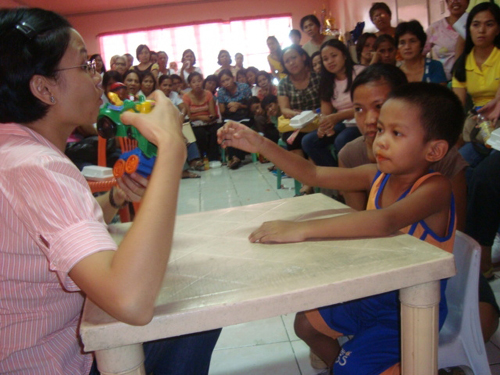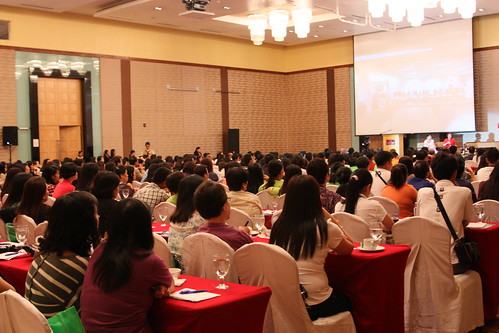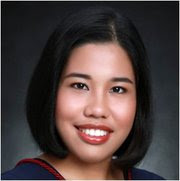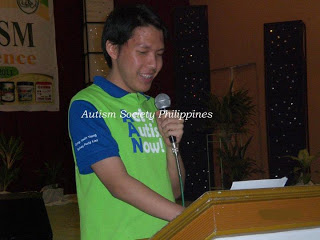By Carlo Figueroa, VERA Files
CAN one marginalized group be more marginalized than the others?
Yes, say persons with disabilities (PWDs) who live with this assumption every day. Indeed, a report by the Coalition on the U.N. Convention on the Rights of Persons with Disabilities (PhilCoalitionCRPD) says that among vulnerable groups—women, youth, gays and lesbians, and indigenous peoples—PWDs get the least attention from government and sadly, even from human rights campaigners.
 |
Leslie Lomongo, a person with cerebral palsy,
sits in his wheelchair waiting for his ride home.
Photo by Mario. |
"Throughout the years, persons with disabilities have remained largely invisible because of discrimination," said PhilCoalitionCRPD in its report submitted to the United Nations Human Rights Council (UNHRC).
The document is part of the joint civil society report submitted for the UNHRC's Universal Periodic Review (UPR) conducted every four years to look at the human rights situations of the U.N. member countries. The Philippines will undergo its review in May.
"Unfortunately, there was no discussion on persons with disabilities in the Philippines' state report for the UPR in 2008," Dr. Liza Martinez, director of the Philippine Deaf Resource Center and a member of the PhilCoalition CPRD said in a recent briefing held in Makati City in preparation for the UPR.
"When will this veil be lifted?" she asked, referring to the lack of attention given to PWD issues even within international discussions on human rights. "The fact that there is no mention of any disability rights, nor any participation by the sector in the first UPR is clearly evidence of this," the coalition's statement added.
Martinez and her group are hoping that the response to her question would come sooner through their recommendations given to the UNHRC.
The coalition is recommending that the Philippines ratify the Optional Protocol to the U.N. Convention on the Rights of Persons with Disabilities (UNCRPD). Though the Philippines signed the convention in 2007, it has yet to ratify the optional protocol.
The convention is an international treaty that obliges signatory states to promote and protect the rights of PWDs. It also establishes a special committee in the U.N. to monitor the implementation of the agreement. The optional protocol meanwhile sets procedures to carry out the provisions of the convention including mechanisms on how to file charges and complaints of violations before the committee, and giving the committee the authority to organize inquiries to investigate allegations.
The second recommendation is for the government to do a comprehensive review of policies that may be discriminatory "on the basis of disability." The coalition's report said that there has been no effort to harmonize local laws with the UNCRPD.
The report identified policies that do not recognize PWDs as legally competent: In several articles of the Civil Code, in the Rules of Court, and policies concerning guardianship, and the appropriation for programs and activities for PWDs.
"Exclusion and discriminatory practices have been so rampant and have existed for such a long time that it has covered the entire sector with a shroud of invisibility which has to date been very difficult to overcome," the report admitted.
To be fair, the coalition also named social protection mechanisms for PWDs: Disability benefits, PhilHealth insurance, and a 20 percent discount on medicine, transportation, and medical services. But the group pointed out that these are insufficient and actually unfair. Only PWDs who are employed enjoy disability benefits, and since a majority of them are unemployed, they are not eligible for these benefits.
"Since many of them are also poor, they would not even have the minimum capacity to purchase medicine, medical services, etc. in the first place so that they can avail of the 20 percent discount. This 20 percent discount is not available in areas where there are no establishments mandated to provide such discounts. Also, labor market programs for persons with disabilities have not been systematic enough to have a significant impact," the report said.
The absence of updated data that provides basic information such as the latest statistics of PWDs is also problematic. "There is a dire lack of documentation for even the most fundamental information about Filipinos with disabilities," the report said.
The last available report made by the National Statistics Office in 2005 was based on the national census conducted five years earlier in 2000. Based on the results of that census, there were more than 942,000 people with disabilities or about 1.23 percent of the country's total population at that time.
Blindness, deafness, paralysis, and mental retardation or mental illness were the four most common impairments. This lack of recent statistics poses a challenge as policymakers rely on these numbers to justify appropriations for programs and services for what is considered a vulnerable sector.
VERA Files is put out by veteran journalists taking a deeper look at current issues. VERA is Latin for true. Via Yahoo News.
*****
ASP is a member of the Philippine Coalition of UNCRPD.
Be an Autism Angel. Donate generously to Autism Society Philippines. Donations can be deposited to Metrobank Kamias Branch 047-3-04751874-2. Email us at autismphils@gmail.com or call 7-903-5496 for more information.






 Posted in:
Posted in: 




